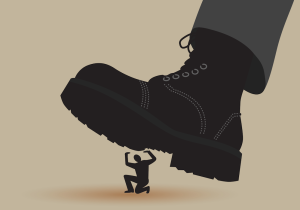Dena: Reparations. It’s a term you’ve likely heard before, but what does it mean? It’s a type of compensation given to a group of people who’ve suffered abuse at the hands of a more powerful group. In the US, it’s often talked about in terms of slavery, but slavery was so long ago, and some ask, “Why should Black Americans be compensated now?”
Well, proponents argue that the US was built on the backs of slaves, and all our social institutions continue to reinforce rigid economic inequalities against blacks. It’s easy to see why.
From slavery, white families got rich, bought land, and cemented legacies, while black families were torn apart and kept in extreme poverty. From the dawn of America, the starting line for blacks was far behind the white majority. The Emancipation Proclamation did little to end the racial stigma of being black in America, and even less to ensure that ex-slaves could access the immense wealth that white America had accumulated off their labor.
While all Americans of all backgrounds are deemed equal under the law, equality also means equal access to economic opportunity, healthcare, property, education, and justice. Black people have been systematically denied these things for the past 150 years, and not just by Jim Crow laws in the South. Every major American social institution has roots in slavery.
The US school system is still unequal and unofficially segregated. Teachers in minority schools make less money, and are less likely to be certified. Black students are often at a disadvantage from day one, and fewer black boys graduate from high school. 60% of people behind bars in the US are people of color, and black men are close to six times more likely than white men to go to prison.
Housing discrimination continues as well, thanks to old techniques like red-lining, which deny home loans and insurance to people living in certain areas, and predatory lending. Blacks have been forced to live in low-income neighborhoods, and denied the chance to own homes.
Oh, and then there’s life expectancy. Black men die on average five years earlier than white men. The infant mortality rate for black babies is more than twice that of whites. Socioeconomic factors like diet, lifestyle, and lack of preventative care all come into play here. You’d think all of this might make our nation’s leaders want to have a discussion about reparations, but you’d be wrong.
Congressman John Conyers, Jr. has been introducing the same bill for twenty-five years, calling for a commission to discuss reparations. It’s been shot down every time. While there are many obstacles in the way of distributing reparations, it’s not impossible. Take Germany, South Africa, and Chile. All countries that have given reparations to groups of people their governments mistreated. Even here in the US, reparations have happened.
In 1988, the US began the process of reparations for more than 100,000 surviving Japanese Americans that were placed in incarceration camps during World War II. Reparations don’t have to be monetary. They can be commissions for collective healing, investments in underdeveloped neighborhood, access to skills training, or even major legal reforms.
There are, of course, many questions like who would get compensated? What specific problems would be solved?
Reparations don’t right the wrongs of the past, nor or they a means by which the conditions of people who’ve been grossly abused are somehow magically fixed. In a country where the government has yet to formally apologize for slavery, something that began 400 years ago, isn’t it time to start talking about what can be done to heal those wounds?




















